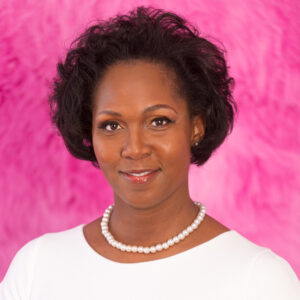I can remember exactly when my thinking about school vouchers began to change. I was attending a community meeting, waiting to find out whether my small children, then in kindergarten and first grade, were going to receive vouchers to attend a private school. The meeting was almost over when a community member stood up and told us how disturbed she was by the way we all kept talking about ‘my children.’ “We have to be focused on the children who do not have the choices you have,” she told us solemnly. “They’re going to fall through the cracks.” It would take me years to see for myself what she meant, but the seed was planted that night.
My two sons did get school vouchers and were accepted to a private Baptist K-12 school. As the years passed, I became more aware of the impact of the decision I’d made. It started with my own children. After the murder of Trayvon Martin in 2012, my oldest son wore a hoodie to school and it was viewed as a political statement. The signs that he wasn’t really welcome at a school that got less diverse in each successive grade became more apparent. I saw the eyes and heard the comments in the bleachers. My youngest son was the only Black child in his class. He started to get discouraged, convinced that he wasn’t smart. He never found his people at that school. I began to understand that school is about more than academics. The social element really matters too.
My perspective really began to change when my husband, Dr. Ramon Batts, decided to run for school board in Indianapolis. He could see what I’d been missing—that as charter schools and vouchers expanded, the school system in Indianapolis was falling apart. All of the high schools in our neighborhood had been shut down, even as charter high schools were popping up. Here was the neediest school system in the state, serving the neediest kids, and yet funds were being systematically drained away. And it was only getting worse. In the years that my children had been attending their private school, Indiana had expanded eligibility for the voucher program again and again. Today, families earning up to $140,000 can attend private schools at public expense.
For the first time I really began to think about the impact of the decision I’d made on everybody else. By pulling away from the public system, I was leaving less for the kids who’d been left behind, including the ones who couldn’t get into private schools, or who got kicked out because they didn’t conform to what the schools wanted. The more I saw, the more it bothered me. I was using public dollars to perpetuate discrimination in the name of school choice. I decided that I could no longer accept school vouchers for my children because it was unethical.
Today, both of my children attend public schools, and my younger son has finally found “his people.” And I’m now an advocate for public education. I try to get parents to understand that if we defund, undermine or privatize public schools we’re doing a disservice to the majority of parents for whom private schools are not an option. I try to help them see what I finally did: that the decisions we make when it comes to our own children have an impact on everybody else. All those years ago, that woman at the community meeting warned that we were drifting dangerously away from the idea of a common good. At the time, I couldn’t understand what she meant. I do now.
Do you live in Indiana?
If so, stand with Dountonia
Here is a sample message you can send:
I am an advocate of well-financed and equitable public schools. I strongly oppose my tax dollars going to private and religious schools that discriminate against students in admissions, while draining funds from public schools. I am asking that you eliminate Indiana’s voucher programs. Thank you.

